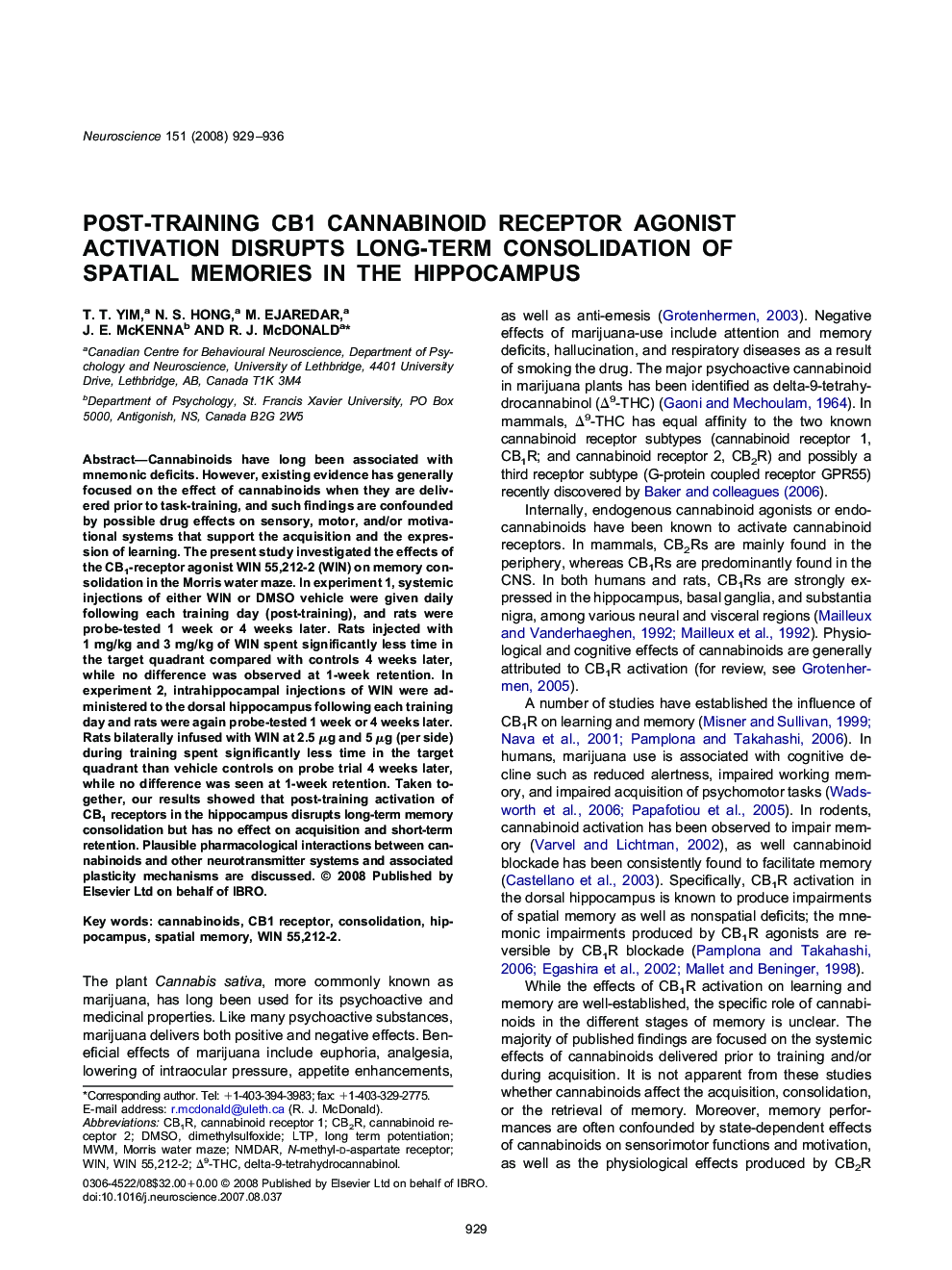| Article ID | Journal | Published Year | Pages | File Type |
|---|---|---|---|---|
| 4340751 | Neuroscience | 2008 | 8 Pages |
Cannabinoids have long been associated with mnemonic deficits. However, existing evidence has generally focused on the effect of cannabinoids when they are delivered prior to task-training, and such findings are confounded by possible drug effects on sensory, motor, and/or motivational systems that support the acquisition and the expression of learning. The present study investigated the effects of the CB1-receptor agonist WIN 55,212-2 (WIN) on memory consolidation in the Morris water maze. In experiment 1, systemic injections of either WIN or DMSO vehicle were given daily following each training day (post-training), and rats were probe-tested 1 week or 4 weeks later. Rats injected with 1 mg/kg and 3 mg/kg of WIN spent significantly less time in the target quadrant compared with controls 4 weeks later, while no difference was observed at 1-week retention. In experiment 2, intrahippocampal injections of WIN were administered to the dorsal hippocampus following each training day and rats were again probe-tested 1 week or 4 weeks later. Rats bilaterally infused with WIN at 2.5 μg and 5 μg (per side) during training spent significantly less time in the target quadrant than vehicle controls on probe trial 4 weeks later, while no difference was seen at 1-week retention. Taken together, our results showed that post-training activation of CB1 receptors in the hippocampus disrupts long-term memory consolidation but has no effect on acquisition and short-term retention. Plausible pharmacological interactions between cannabinoids and other neurotransmitter systems and associated plasticity mechanisms are discussed.
